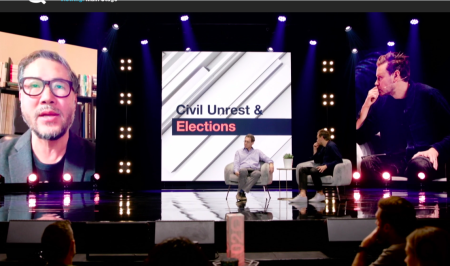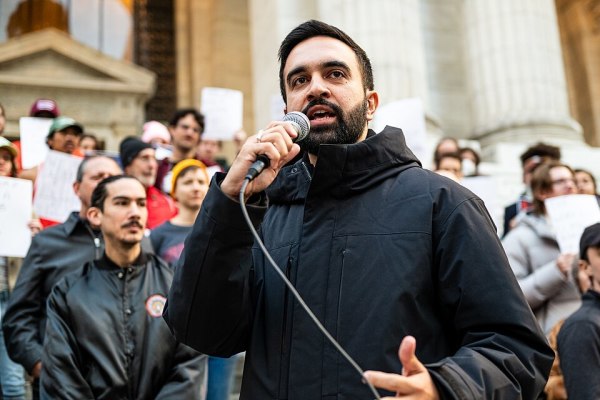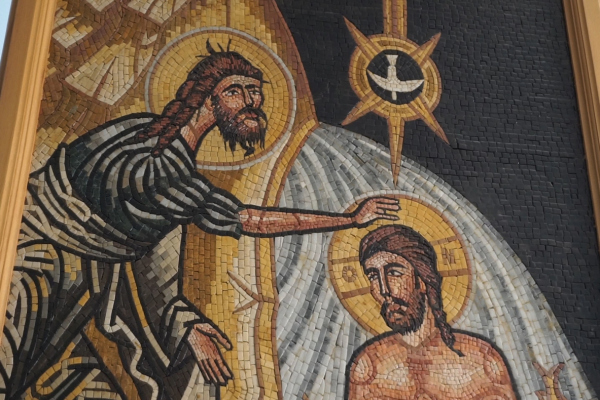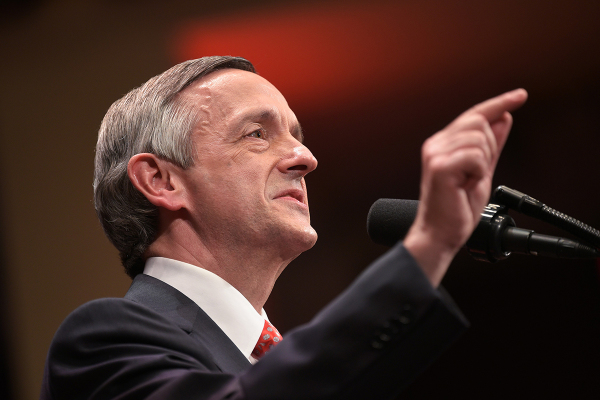Eugene Cho issues call for unity, says politics is 'pervasive idolatry of our time'

One week after a contentious election, Eugene Cho, president and CEO of Bread for the World, has issued a call to unity and warned against political idolatry, reminding Christians that the “answer” to a “divided nation isn’t a divided church.”
On Wednesday, Cho participated in a Q&A: A Virtual Townhall session focused on the topic of civil unrest and elections. The Korean-American pastor who also founded One Day’s Wages said he believes it’s “heretical” to say that any political party “fully encapsulates the Kingdom of God.”
“It's nonsensical but it doesn't mean Christians shouldn’t speak directly and emphatically about [policies that are] clearly against God's Kingdom,” he said.
For example, pro-life Christians must be “clear” that they believe in the sanctity of life from “womb to tomb,” Cho explained.
“When language is used to be demonized, to debase, to basically polarize others, we need to speak up,” theThou Shalt Not be a Jerkauthor said.
Cho argued that too many Christians are guilty of “aligning with culture and theology of our culture, rather than being committed to the Kingdom of God.”
While politics matter, it has, unfortunately, become the “pervasive idolatry of our time,” the Seattle-based speaker and author said.
“Politics matters, but it isn't our salvation, it isn't our Savior,” he said. “The world doesn't need more jerks for Jesus. As we’re talking about a divided nation, the answer isn’t a divided church, but that's the reality. We divide the church. And so we need to do more work within our own hearts.”
According to Cho, anyone who confesses Jesus as Lord of their life should be asking, “How am I doing? Is Jesus Christ truly Lord and Savior of my life? Do I pledge my allegiance to the Kingdom of God?”
“The Kingdom of God isn't a nebulous concept of humanism and feel good, fuzzy concept; the Kingdom of God has a king, and His name is Jesus. And so we have to follow the ways of Jesus,” Cho declared.
“We should not pledge allegiance to a political party,” he said. “The Kingdom of God can never be monopolized by a political party.”
When it comes to voting both nationally and locally, Cho said he considers four categories: a candidate's policy, history, character, and vision and imagination for the future.
“It’s very dangerous and lazy when we hit basically vote blue or red straight up and down the ticket,” he warned, while adding that Christians need to “critically engage” with politics to be “good citizens here on Earth.”
When it comes to shepherding congregations in this time of unprecedented unrest, Cho urged pastors and church leaders to focus on self-care.
"Please take care of yourself,” he said. “Leadership is not a sprint. It's a marathon. And God calls us to be about the marathon of leadership.”
“To be a Christ follower is to be faithful, as humbly as we can, amid tension ... and to keep doing whatever helps us to maintain that posture,” he advised.
Christians must acknowledge that a “kumbaya song isn’t going to fix a broken system,” Cho said. “We need both the pastoral and the prophetic.”
“I think the concern that I have is sometimes we have leaders who want to be pastoral, but we've completely relinquished our commitment and call to also be prophetic."
“I don't think it's so much about trying to be in the middle about playing it safe, but to acknowledge that we need to do both of these things. The reason why we need both of these things is that it reminds us that we need personal change, but we also need structural change."
Lee Camp, a professor of theology and ethics, joined Cho for the conversation. Camp posited that Christians who say Christianity is not political “show themselves by that statement, to be good enlightenment liberals in pious clothing.”
“When we say Christianity is not political, we're just showing that we do not understand what Christianity is,” he said, explaining that Christianity addresses issues like human rights, poverty and wealth, and reconciliation.
“I think we have to reclaim the fact that Christianity is an alternative politic ... neither right nor left,” he added, stressing the importance of “not getting caught up in that continuum and thinking we Christians have to find the right place on the American political spectrum to camp out.”
“That's not our job. Instead, our job is to bear witness to this Kingdom of God, which is itself a politic,” he said.





















